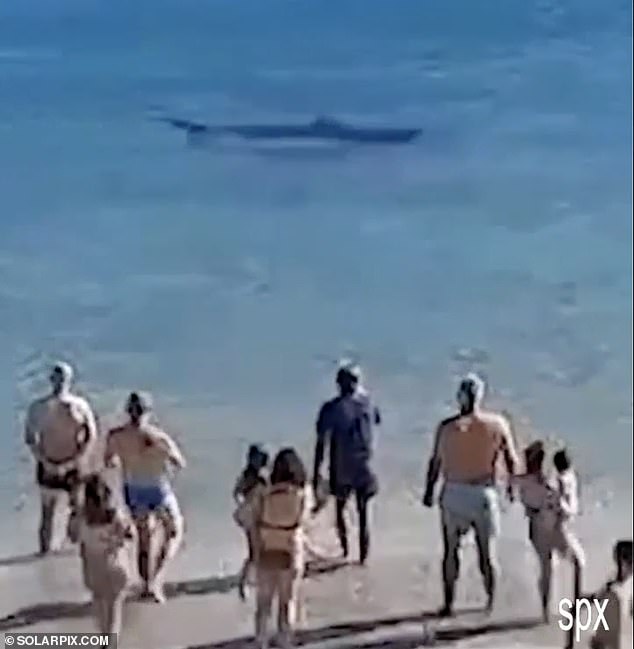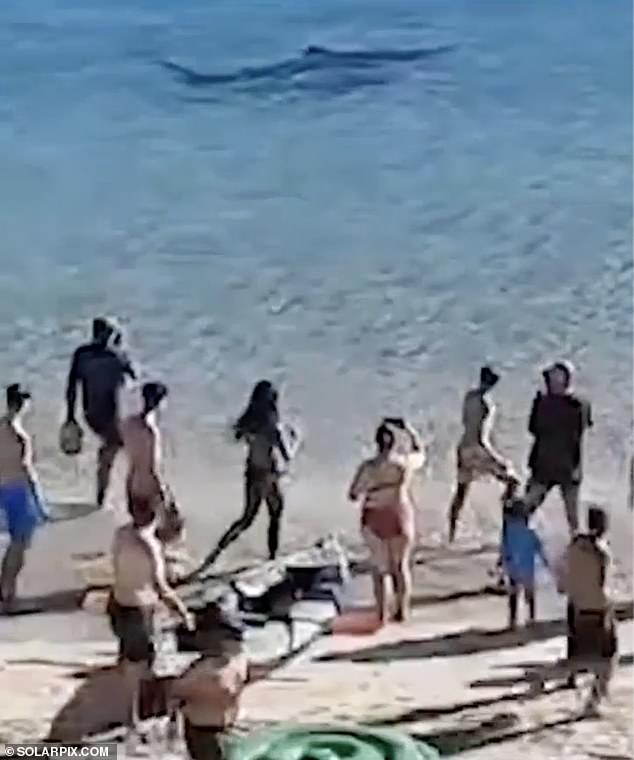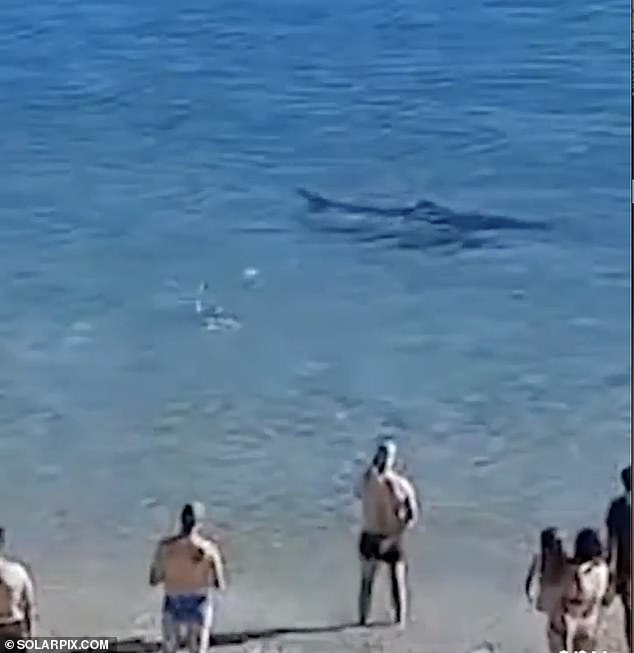Families flee water as three-metre shark swims towards shore of Spanish beach
- The shark was spotted on Monday on the beach of Porto de Bares in La Coruna
A three-metre-long shark caused panic among sunbathers on a busy Spanish beach, approaching the shoreline as they cooled off in the sea.
Tourists and locals sought a safe spot on the sand before taking videos of the large fish gliding through the turquoise water.
But despite being inches away from the animal, they had no reason to worry, as it was later determined to be a harmless basking shark, an endangered species.
The drama unfolded on Monday afternoon shortly after 5pm on the beach of Porto de Bares, near the town of Manon in the Galician province of La Coruna.
Local mayor Alfredo Dovale said he could not recall ever seeing a shark of this type so close to the shoreline, and he thought it was due to the higher water temperatures.
A shark caused panic among sunbathers on a busy beach in La Coruna, Spain, after coming close to the shoreline

Tourists and locals sought the safety of the sand before taking videos of the large fish

Beachgoers can watch the shark in amazement and take videos from the shore
He added: ‘The way it was moving, it seemed disoriented and even sick.’
The animal was spotted again on Tuesday, but this time further from the coastline.
Late last month, a 7.3-metre-long basking shark, the second largest shark species, washed up on a beach in the Scottish village of Maidens in Ayrshire.
A forklift had to be used to get him off the beach. He had a rope wrapped between his mouth and around his tail.
Earlier this week, scientists captured the shocking moment a boat collided with a basking shark off the coast of County Kerry, Ireland, just hours after the shark was tagged.

The animal was identified as a harmless basking shark, an endangered species
Researchers said afterward that they were confident it was the first ever video of a shark or other large marine animal being hit by a boat.
It is not clear whether the 6.7-meter-long female has recovered from the impact.
Blue sharks rarely bite humans, but have been involved in several bite incidents, which has led to the temporary closure of beaches on the Costa del Sol and Costa Blanca in recent years.
In May, the coastguard raised the red flag and called the Spanish equivalent of 999 after the distinctive fin of a two-metre-long blue shark, or tintorera, was spotted above the waterline at Menorca’s popular Arenal d’en Castell beach.
The following month, Gran Canaria’s holiday beaches were closed after a hammerhead shark was spotted off the coastline.
Most hammerhead shark species are considered harmless to humans and attacks have been reported to be rare. However, they are aggressive hunters and their size and ferocity make them potentially dangerous.
